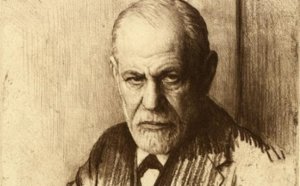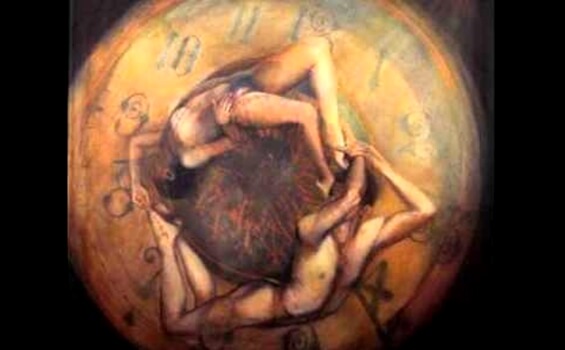Sigmund Freud: Libido is About More Than Just Sex

Many of us have a very reductionist idea of libido: restricted to its sexual interpretation. However, Sigmund Freud, the father of psychoanalysis, treated this term very differently. He spoke of libido in much broader terms than what we currently know.
Freud defined libido as the energy that comes from drives or instincts that direct our behavior. That said, he differentiated between two types of drives: the life drive and the death drive.
The drive for life refers to impulses that have to do with affections or emotions. Those that invite us to fall in love and reproduce and connect with other people. Freud said this could be associated with what he defined as “id” or “ego”. Two terms we’ll explain later.
On the other hand, we have the death drive. It opposes life and entails some wear and tear. Here we find repetitions that invite us to stumble over the same stone. For example, when we fall in love with the same type of people who end up hurting us.
The two types of drives that Freud established are known as the “life drive” or “Eros” and the “death drive” or “Thanatos.”
Libido and pleasure
Although we immediately relate libido and sexual pleasure, for Freud, pleasure goes further. For example, don’t we feel pleasure when we drink water after being thirsty? Don’t we feel pleasure when we taste a delicious dessert? And when we warm ourselves in the heat of a bonfire in winter?
For Freud, this affirmed his idea that libido is present in what he defined as the id, the ego, and the superego. The id is where the pleasure principle is found, what we consider immediate pleasure. It’s the part of our psychology that unconsciously guides us towards delight. For example, I’m thirsty: I’ll find a cold beer.

On the contrary, the ego limits the energy of the libido. It is responsible for getting pleasure while taking reality into account. At this point, our environment comes into play, as well as society’s rules. Continuing with the previous example, I may want a beer, but perhaps I pick a drink without alcohol because I have to drive.
Finally, the superego is similar to the ego, but gives great importance to morality. It has internalized the norms and values of society. The rules we learn through contact and interaction with others.
Going back to our example, I might feel guilty about drinking a beer because drinking alcohol outside of a social context is frowned upon by society. I feel guilty because of the internalized vision.
Sigmund Freud established a particular structure of the mind to explain basic human functioning. This structure is composed of three elements: the id, the ego, and the superego.
Stages of psycho-sexual development
For Freud, libido is also present in the different stages of human development. However, it is different in each stage. That is, the libido is expressed in different ways depending on where a person is in their development.
- Oral phase: pleasure is obtained through the mouth
- Anal phase: sphincter and defecation are controlled, activity linked to pleasure and sexuality
- Phallic phase: pleasure is obtained when urinating, thanks to the pleasant sensation it produces
- Latency phase: modesty and shame appear, related to sexuality
- Genital phase: the arrival of puberty and sexual maturity
However, according to Freud, the libido sometimes stagnates. That is, it does not go with the natural flow. This occurs when there is some kind of fixation that prevents progress.
For example, if we cling to the pleasure we get from the mouth in the oral phase, it will be difficult to leave it behind and completely immerse ourselves in the next phase.
“The transformation of object-libido into narcissistic libido which thus takes place, obviously implies an abandonment of sexual aims, a desexualization – a kind of sublimation.”
-Sigmund Freud-

As we’ve seen, the father of psychoanalysis didn’t think of libido as we do today. For him it was not just a desire to get sexual pleasure. But that pleasure was implicit in other areas of our lives and also progressing as we go through the stages of our psycho-sexual development.
This text is provided for informational purposes only and does not replace consultation with a professional. If in doubt, consult your specialist.








